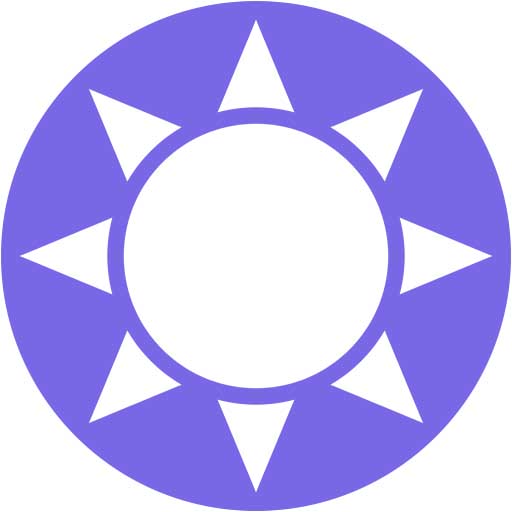Astrology has been around for centuries, and many people turn to it for guidance in various aspects of their lives. One of the most common questions asked about astrology is whether it can predict the future. In this article, we will explore the accuracy of astrology and its ability to predict the future.
Why is Astrology so Accurate?
Astrology is often cited as being remarkably accurate, even by skeptics. This is because astrology is based on the idea that everything in the universe is interconnected, and that the movements of the planets and stars have an effect on our lives. The position of the planets at the time of our birth, for example, is believed to influence our personality traits and life path.
Additionally, astrologers use a variety of tools and techniques to create charts and make predictions, including the study of planetary transits, solar returns, and progressions. They also take into account the position of the moon, which is thought to have a significant influence on our emotional state.
If Astrology is Accurate, How Come it’s not Really Able to Predict the Future?
While astrology can be incredibly accurate in providing insights into our personality traits and life path, it is not a tool for predicting the future with complete accuracy. This is because the future is not set in stone, and there are many variables that can impact the outcome of a situation.
Astrology is more of a tool for gaining insight into potential outcomes and understanding the energies at play in a given situation. It can help us to navigate challenges and make informed decisions based on the planetary alignments and other astrological factors.
What are Astrology Predictions Based On?
Astrology predictions are based on the study of planetary transits and their impact on our lives. Astrologers use a variety of tools and techniques to create charts and make predictions, including the study of planetary transits, solar returns, and progressions.
Planetary transits, for example, occur when a planet moves across a particular point in the sky and can have an influence on our lives. These transits can be used to predict potential challenges or opportunities, depending on the position of the planets at a given time.
Solar returns, on the other hand, occur when the sun returns to the same position in the sky as it was at the time of our birth. This is thought to mark the beginning of a new cycle, and astrologers use this chart to make predictions about the upcoming year.
Progressions are another tool used by astrologers to make predictions. These charts are based on the idea that the planets move through the zodiac at a steady pace, and that the position of the planets at a particular point in time can be used to make predictions about future events.
Where Does Astrology Come From?
One of the earliest known astrological systems was developed by the Babylonians around 2000 BCE. They were the first to create a system of 12 zodiac signs and to associate them with different constellations in the night sky. The Babylonians also developed the concept of astrological transits, which involves tracking the movement of planets in relation to a person’s birth chart.
The ancient Egyptians also had a strong tradition of astrology. They believed that the movements of the stars and planets were a reflection of the gods and goddesses, and that these celestial bodies could influence events on Earth. They used astrology to predict everything from the flooding of the Nile River to the outcome of battles.
In India, astrology has been an integral part of Hindu culture for thousands of years. Vedic astrology, also known as Jyotish, is one of the oldest and most complex astrological systems in the world. It is based on the belief that the positions of the stars and planets at the time of a person’s birth can reveal important information about their character, life path, and destiny.
In China, astrology has been practiced for more than 2,000 years. Chinese astrology is based on a 12-year cycle of animals, with each year associated with a different animal sign. It is believed that the animal sign of a person’s birth year can provide insight into their personality and life path.
In modern times, astrology has continued to evolve and adapt to new cultural and social contexts. Today, there are many different types of astrology practiced around the world, including Western astrology, Vedic astrology, Chinese astrology, and more.
Western astrology, which is the most widely practiced form of astrology in the Western world, is based on the tropical zodiac, which is a 12-month cycle of zodiac signs that begins with the sign of Aries in the spring. It is believed that the positions of the planets in relation to the zodiac signs at the time of a person’s birth can reveal important information about their personality, life path, and destiny.
Vedic astrology, also known as Jyotish, is based on the sidereal zodiac, which is a 12-month cycle of zodiac signs that begins with the sign of Aries at a fixed point in the sky. Vedic astrology is known for its complex system of dashas and bhuktis, which are specific planetary periods that can be used to predict future events.
Despite the differences between these astrological systems, they all share a belief in the interconnectedness of the universe and the idea that the positions of the stars and planets can provide valuable insights into our lives and our future.
Should We Believe in Astrology or Not?
Belief in astrology is a personal choice, and there is no right or wrong answer. Some people find astrology to be a valuable tool for gaining insight and understanding, while others do not place much stock in it.
It is important to remember that astrology is not a substitute for professional advice or medical treatment, and should be used as a tool for gaining insight and understanding rather than a means of making important life decisions.
Final Thoughts on Astrology Telling the Future
While astrology may not be able to predict the future with absolute certainty, it can provide insight and guidance into potential influences and energies that may affect a person’s life. Astrology predictions are based on the positions of the planets and celestial bodies, and can be useful for gaining insight into personality traits, life path, and potential challenges and opportunities.
It is important to remember that astrology should not be used as a substitute for professional advice, and that ultimately, we have the power to make our own choices and shape our own destiny. Whether or not to believe in astrology is a personal choice, and each individual should decide for themselves what role, if any, astrology will play in their lives.




